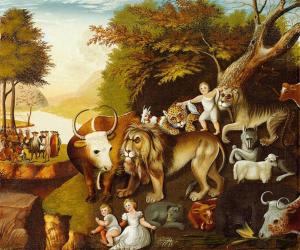Foods and Culinary Utensils of the Ancients
Nonfiction, Religion & Spirituality, New Age, History, Fiction & Literature| Author: | Charles Martyn | ISBN: | 9781465583864 |
| Publisher: | Library of Alexandria | Publication: | March 8, 2015 |
| Imprint: | Language: | English |
| Author: | Charles Martyn |
| ISBN: | 9781465583864 |
| Publisher: | Library of Alexandria |
| Publication: | March 8, 2015 |
| Imprint: | |
| Language: | English |
The influence exerted by different foods over the physical and mental faculties of mankind is so marked as to verify the famous pun of the philosophic Feuerbach, "Der Mensch ist was er isst" (Man is what he eats). The advance of civilization has always been accompanied by an increased knowledge of culinary matters, until cooking has become a science and its various forms great in number. So in tracing back the history of foods, culinary utensils and their uses, we of necessity trace back the history of the world. It is of course impossible at this late date to determine what was the first food of primeval man; ignorant as we are of even the approximate date of his first appearance and of the manner and means of that appearance. But it is worthy of note that if he had not been endowed with an intelligence superior to that of the other inhabitants of the globe, his existence here would have been very brief. Nature provided him with a body which, in those days, was well nigh useless. His prehensile organs, his teeth, jaws, feet and nails, did not fit him for overcoming any of the difficulties entailed by the adoption of most foods prepared by nature. He could not tear his prey conveniently nor crack many nuts, nor grub roots, nor graze. His digestive viscera were in the middle age too bulky and heavy for the rapid movements of the carnivora; they were not long enough to extract nourishment from raw vegetables. The only foods, therefore, primarily obtainable by him which he could use to advantage were fruits and soft-shelled nuts.
The influence exerted by different foods over the physical and mental faculties of mankind is so marked as to verify the famous pun of the philosophic Feuerbach, "Der Mensch ist was er isst" (Man is what he eats). The advance of civilization has always been accompanied by an increased knowledge of culinary matters, until cooking has become a science and its various forms great in number. So in tracing back the history of foods, culinary utensils and their uses, we of necessity trace back the history of the world. It is of course impossible at this late date to determine what was the first food of primeval man; ignorant as we are of even the approximate date of his first appearance and of the manner and means of that appearance. But it is worthy of note that if he had not been endowed with an intelligence superior to that of the other inhabitants of the globe, his existence here would have been very brief. Nature provided him with a body which, in those days, was well nigh useless. His prehensile organs, his teeth, jaws, feet and nails, did not fit him for overcoming any of the difficulties entailed by the adoption of most foods prepared by nature. He could not tear his prey conveniently nor crack many nuts, nor grub roots, nor graze. His digestive viscera were in the middle age too bulky and heavy for the rapid movements of the carnivora; they were not long enough to extract nourishment from raw vegetables. The only foods, therefore, primarily obtainable by him which he could use to advantage were fruits and soft-shelled nuts.















